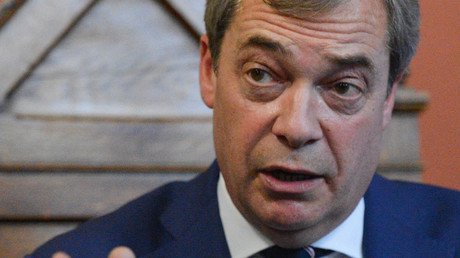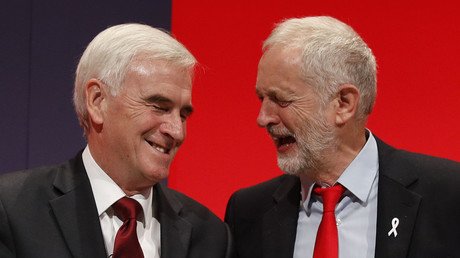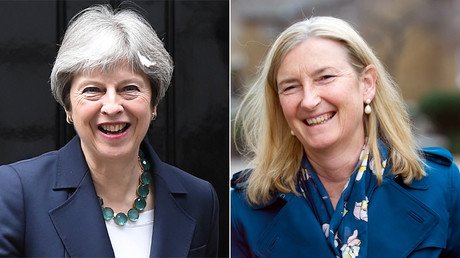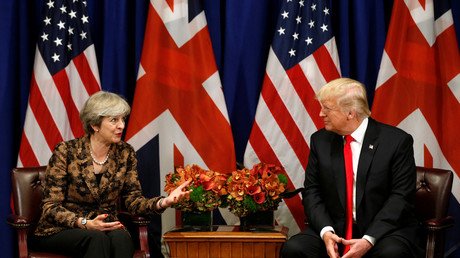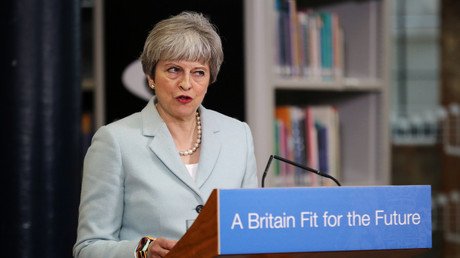Corbyn's Brexit speech enhances his standing as UK prime minister in waiting
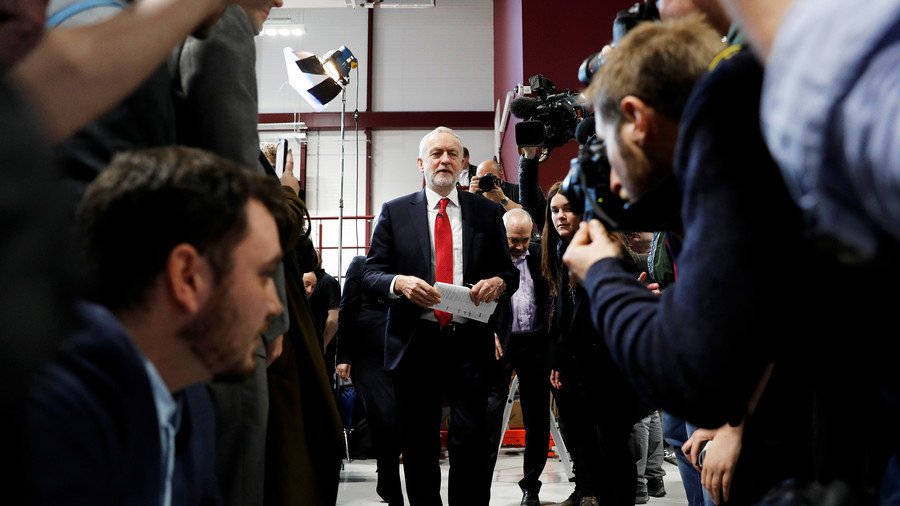
Jeremy Corbyn’s anticipated speech on Brexit, laying out his party’s vision of post-Brexit relations with Europe, ticked many boxes with his supporters.
The key box ticked by the leader of the UK Labour Party in a speech he delivered to an audience of journalists, Labour MPs, party officials, and workers in the city of Coventry, central England, is that if he is elected prime minister after the next election, Labour will seek strong trade, economic, and political relations not only with the EU but with the whole of Europe.
“We are leaving the European Union but we are not leaving Europe. We are not throwing up protectionist barriers, closing the borders and barricading ourselves in. And we want a close and cooperative relationship with the whole of Europe after Brexit,” Corbyn said.
Indeed, lest people have forgotten, Europe does not only consist of the EU and the eurozone. How can real European unity be achieved without the inclusion of the continent’s largest and most populous country, Russia? And what kind of European unity is it that looks to Washington for leadership geopolitically, economically, and militarily.
But this aside, up to now Corbyn had been navigating something of a fudge when it came to Brexit. On the one hand, he had been pledging to respect the result of the 2016 referendum in which 17 million cast a vote for Britain to leave the EU – a Brexit vote largely located within Labour electoral constituencies in the post-industrial north and midlands of England, along with former mining communities in south Wales.
At the same time, Corbyn had also come under increasing pressure from within his own party, in which the overwhelming majority of members, located in major cities such as London and Manchester, supported Remain and are opposed to a hard Brexit; which would involve a complete break from Brussels rather than the maintenance of either single-market membership or membership of the EU customs union.
Corbyn was felt to have been a reluctant Remainer during the referendum campaign, paying lip service to the need for the UK to retain its membership of the EU – a reformed EU, he stressed – while privately still nourishing the same Eurosceptic views he held throughout his many years in politics as a backbench MP. As he made clear: “I have long opposed the embedding of free market orthodoxy and the democratic deficit in the European Union, and that is why I campaigned to ‘remain and reform’ in the referendum campaign.”
By way of a necessary detour, the difference between the EU customs union and single market are that, in the case of the former, member states agree a common tariff on goods from outside the EU, with the exception of food, agriculture, services or government procurement, which are not included. Turkey is an example of a country that is neither in the EU nor the single market, but is part of the EU customs union.
Meanwhile, as with the customs union, states can likewise be in the single market without being in the EU. Norway and Switzerland are states that come into this category. Single-market membership requires acceptance of the ‘four freedoms’ that underpin the Treaty of Rome, the 1957 foundational treaty of the EEC (European Economic Community), which after further incarnations has morphed into the EU we know today. Those four freedoms are the freedom of movement of goods, services, capital and people (labor).
Of the four, the free movement of people (labor) has been a major source of controversy and unease across the EU in recent years, giving rise to xenophobia and anti-migrant hostility, which has been exploited by anti-EU parties and political formations on the right of the political spectrum.
Across the UK after the EU referendum, a spike in hate crimes has ensued. It is a phenomenon Corbyn took pains in the speech to recognize and lament: “It was alarming that after the Brexit vote there was a clear rise in xenophobic and racist attacks on our streets.” He went on: “The referendum campaign was divisive and some politicians on the Leave side whipped up fears and division in order to further their cause that built on the shameful vans telling immigrants to ‘Go home’ that the then home secretary instructed to trundle round the country stirring up division.”
The “then home secretary” the Labour leader was referring to here is current Prime Minister Theresa May.
Even among a section of the left in the UK, migrant labor has been held up as the cause of downward pressure on wages and conditions, especially when it comes to the unskilled sectors of the economy. However, this is false. It is employers who set the wage rate for their workers, and while under existing EU rules those employers have been able to hire workers from outside the UK at a lower wage than indigenous workers, this is a case not for demonizing those migrant workers exploited as a consequence – but the employers and businesses that exploit them. This is a view shared by the Labour leader, making the point that “it is not migrants that drive down wages, it is bad employers that cut pay and bad governments that allow workers to be divided and undermined, and want unions to be weak and passive.”
The political crisis that has engulfed the UK as a result of Brexit has been unremitting, exposing the venality and delusional fantasies of a UK political class made up of free marketeers on the Remain side of the argument, and antediluvian British Empire loyalists on the Leave side. Neither have anything to offer ordinary working people apart from a political changing of the deck chairs on the Titanic.
Jeremy Corbyn is the exception within this dismal political landscape, offering a significant break with the neo-liberal economic status quo at home, along with Britain’s participation in disastrous military interventions overseas: “Let us learn the lessons of Iraq, Libya and Afghanistan and be clear that we will not take our country down the road of regime change wars again.”
That Labour’s Jeremy Corbyn is the most progressive leader of any mainstream party in Western Europe today is not in doubt. However, his vision of a bespoke customs union with the EU after Brexit, rather than the UK being part of the existing EU customs union, may well turn out to be utopian rather than realizable. Hope in this regard is hard to conjure when you consider the current leadership of the EU in Brussels.
The current President of the European Commission, Jean-Claude Juncker, is a case in point. Juncker is to be sure a first-rate second-rate man, someone whom if mediocrity were an Olympic sport would doubtless have a string of gold medals. Yet by dint of some grotesque bureaucratic trick, Mr Juncker finds himself lording it over sovereign elected governments.
Regardless, Brexit has proved the British government’s Achilles heel, leaving it adrift without a compass as Theresa May struggles to unite her own party never mind the country. Jeremy Corbyn’s speech, outlining something approximate to a direction of travel out of this Brexit political morass, has succeeded in enhancing his standing and credibility as a prime minister in waiting.
It is precisely because he is a credible prime minister in waiting that the right-wing press in the UK is doing its utmost to smear and attack him.
The statements, views and opinions expressed in this column are solely those of the author and do not necessarily represent those of RT.

